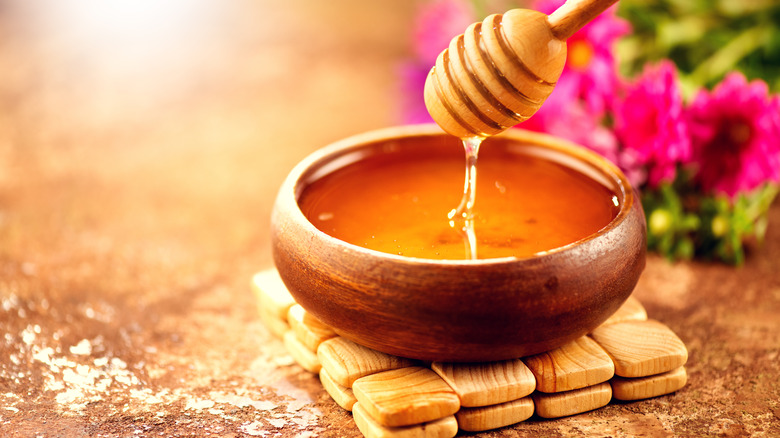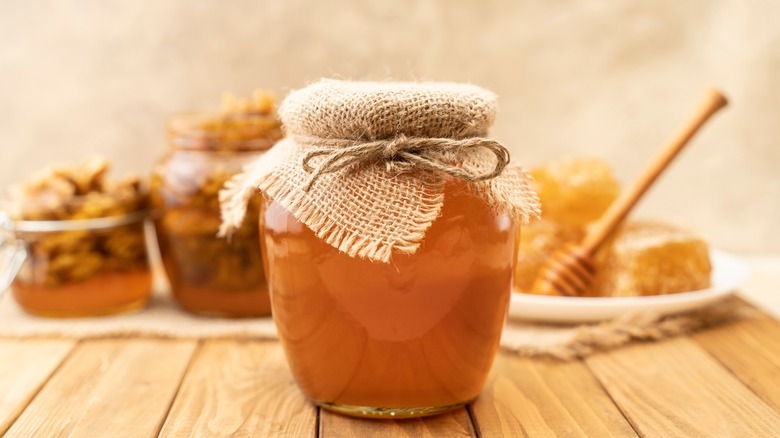Why You Should Always Have Honey In Your Pantry
So what's all the buzz around honey? Derived through the industrious labors of bees collecting nectar from flowers, the beloved substance offers a naturally-sweet sugar substitute along with possible health benefits.
It has a variety of applications in the kitchen, according to Chef Aaron Bedard of Stephanie Inn in Cannon Beach, Oregon, who, in an interview with MSN, praised honey as "a nice natural sweetener" that "can be used as a vinaigrette alternative or glaze for meats like pork or ham." The website Liquor.com recommends using honey as an alternative to sticky syrup to concoct creative cocktails including the Tequila Honey Bee and the Abbey Toddy, a twist on the classic Hot Toddy.
Honey is packed with valuable nutrients such as magnesium, iron, calcium, and potassium, as well as vitamins like B1, B2, B3, and C (per the journal Nutrition & Metabolism via US National Library of Medicine). Antioxidants found in honey mean that they may help reduce inflammation and lower the risk of heart disease. The Mayo Clinic cites studies indicating that certain varieties of honey might even be utilized to curb a cough. As a source of carbohydrates, honey can also provide you with an energy booster. And in its raw, unfiltered form, it doesn't have the artificial sweeteners and synthetic preservatives found in some sugar products which can contain carcinogens (via Hobby Farms).
Honey doesn't go bad
Honey is great to have in the pantry at all times because it has a long shelf life, so you can have it on hand for the aforementioned recipes without worrying about it spoiling. You may be accustomed to seeing "Sell by" or "Best if used by" expiration dates affixed to most items you buy at a grocery store. But if honey is properly stored (airtight mason jars are one suggested option), it can last a long time, if not forever, per UpWellness. This protracted shelf life can be attributed to its low moisture content and acidic pH level, among other properties.
Just how long can honey keep? Scientists have unearthed jars in Egyptian tombs that were still preserved thousands of years later (via Smithsonian Magazine). While medical science and innovation have extended our life expectancies over the past few generations, no one needs honey to last more than 100 years (yet). But it's nice to know that you can take your time finishing off the jar in your pantry without worrying about spoilage.
Not everything about honey is perfect. It's important to remember that honey is, after all, a sugar, and as such is composed of glucose and fructose. We all know that too much sugar–or generally too much of anything for that matter–is bad for your body. Honey, much like the cocktails you add it to, should be consumed in moderation.

